Thanks and Giving in the Garden
It gets dark early now. We are entering the quiet season. In summer, the garden is big and tall and tumbles over itself, growing with abandon, life force fueled by long days of sunshine and warmth. The winter garden is reserved, tucked in, hugging the ground, growing slowly and silently.
Every bit of it is holy. The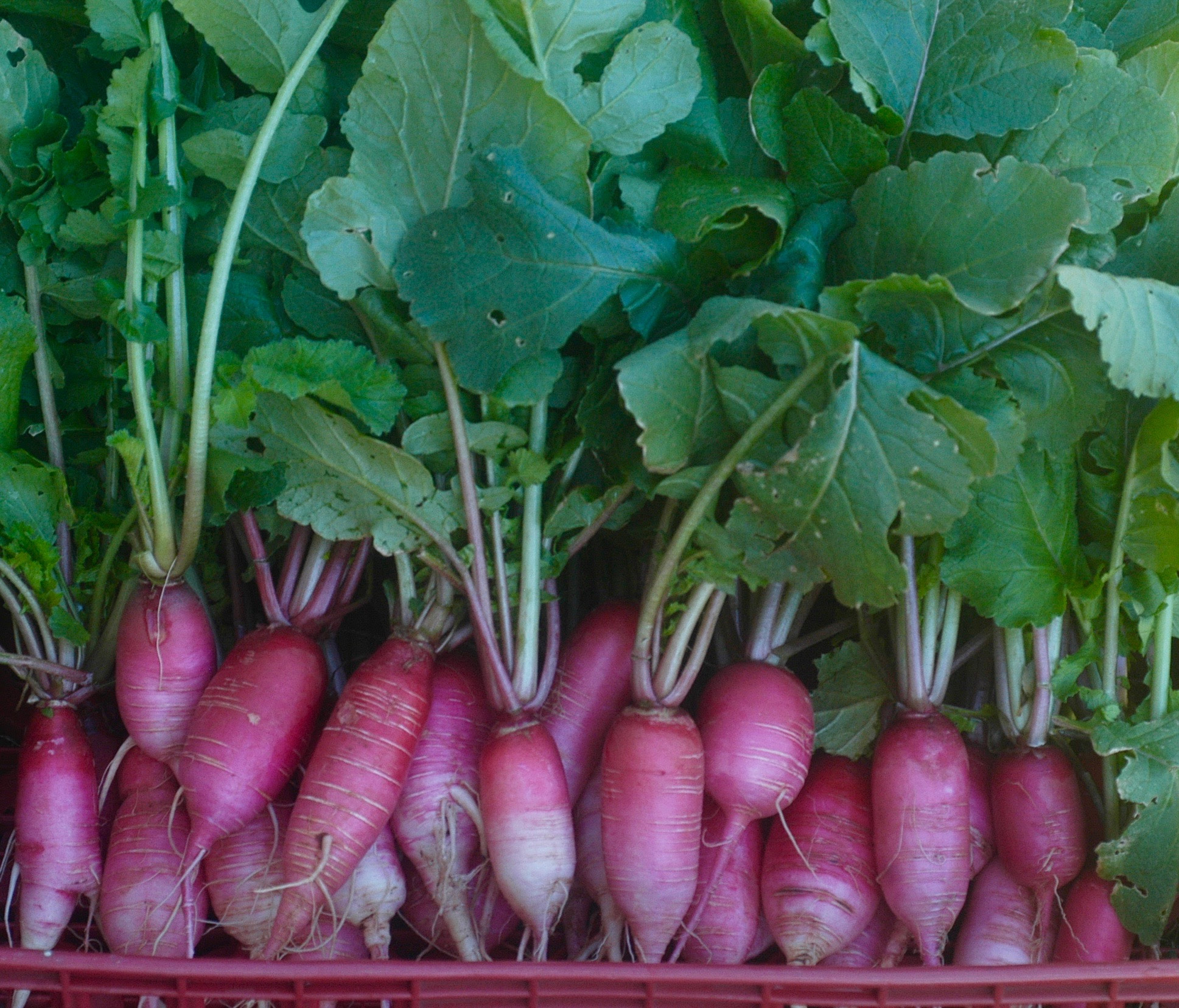 weeds, the worms, the bird that eats the worm, the possum that eats the bird. While money and other human constructs are considered “the bottom line”, the truth is that three times a day, we depend utterly and completely on the providence of the earth to keep us alive. Grateful astonishment is the only response I can imagine.
weeds, the worms, the bird that eats the worm, the possum that eats the bird. While money and other human constructs are considered “the bottom line”, the truth is that three times a day, we depend utterly and completely on the providence of the earth to keep us alive. Grateful astonishment is the only response I can imagine.
This week, as we feast together, we take into our bodies that very life force of the blessed earth. We hold in gratitude every seed that sprouts, every hand that plants and harvests, every hungry soul who is nourished.—Lia
Gardening in November? Really!
 The hoop house is full up now, every row planned and planted. We succession plant our greens so we can harvest all winter long. The photo shows 3 rows of lettuce; the row in the back was seeded in early October and we cut our first harvest two weeks ago. We seeded the middle row in late October, and the row in front in early November. Each row will give us multiple harvests, with a couple weeks in between each harvest for re-growth.
The hoop house is full up now, every row planned and planted. We succession plant our greens so we can harvest all winter long. The photo shows 3 rows of lettuce; the row in the back was seeded in early October and we cut our first harvest two weeks ago. We seeded the middle row in late October, and the row in front in early November. Each row will give us multiple harvests, with a couple weeks in between each harvest for re-growth.

Outside, we’re harvesting greens and roots from early fall plantings. The rest of the outside rows are mostly in cover crops, which feed the soil. We plant a mix of legumes (Austrian winter peas, hairy vetch, crimson clover) to add nitrogen to the soil, daikon radishes for their thick roots that break up clay soil, winter rye or wheat for improving soil tilth, and all of them for erosion control, weed suppression and organic matter. You can plant a row of cover crops for just pennies; if you want a cheap, easy way to improve the health of your soil, this is a no-brainer! Come spring, the cover crops can be turned into the soil to decompose, or pulled and composted separately.—Lia
Community Celebration: Music, Food, Learning, Fun at our 2017 harvest potluck!
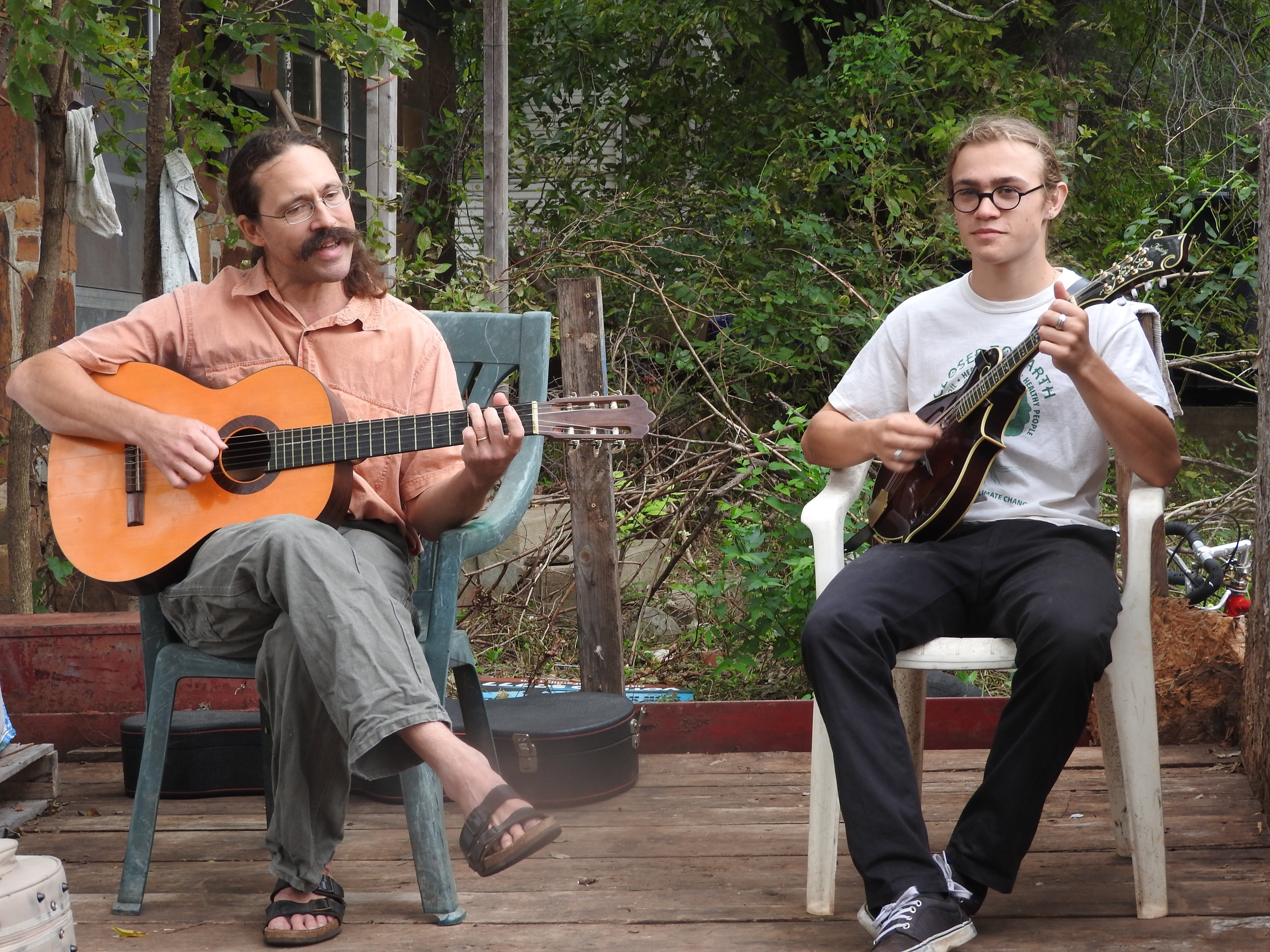
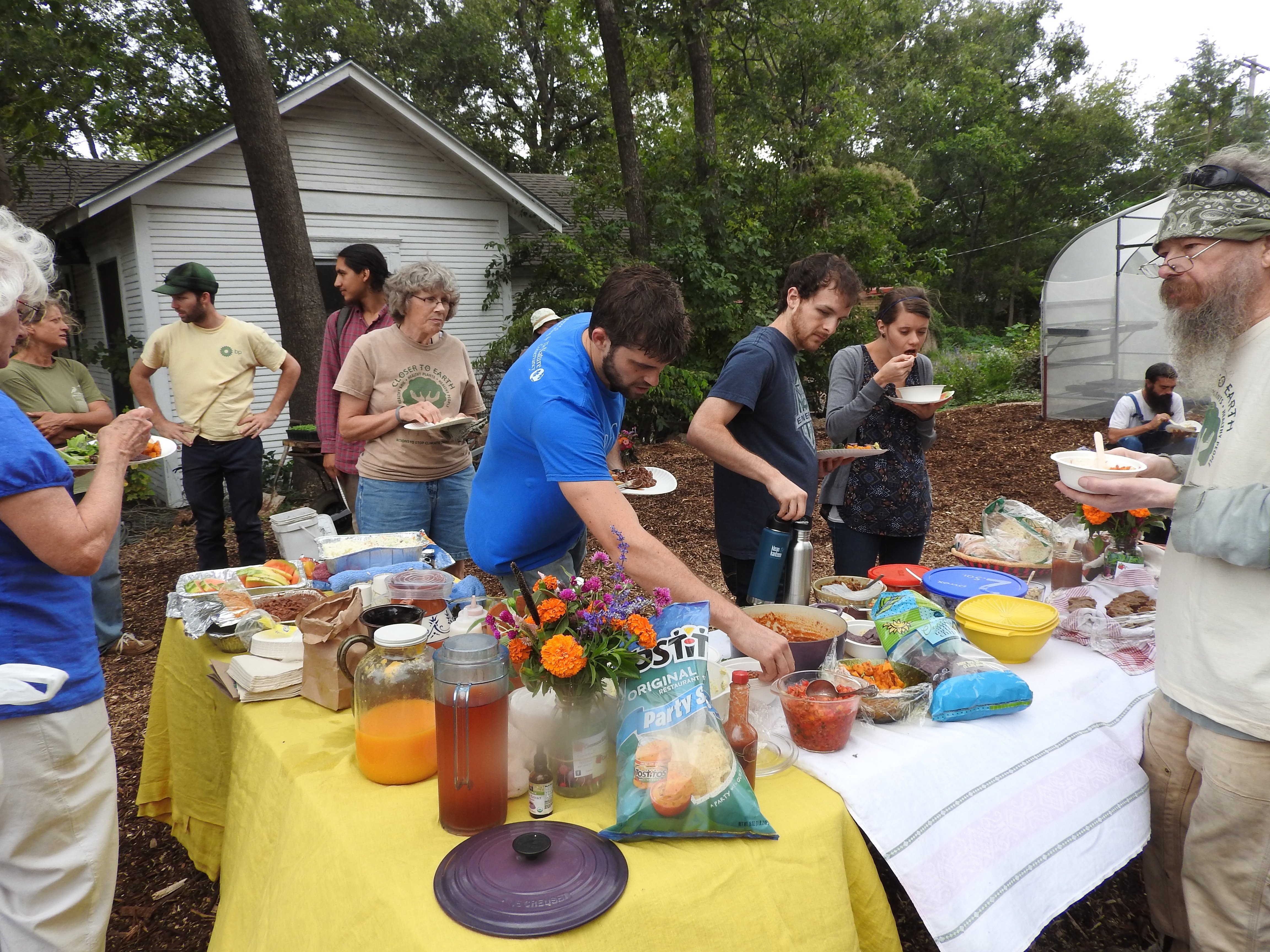

Meet our Team: JoBeth Hamon
 JoBeth grew up in the city where her family had flower beds around their house. Her dad would hound her to go out and pull weeds. “I hated it,” she said.
JoBeth grew up in the city where her family had flower beds around their house. Her dad would hound her to go out and pull weeds. “I hated it,” she said. During a science class in college, she studied current issues in biology, including global warming and the industrial ag food system. She learned how our food travels miles from where it’s produced, to our tables. Her sophomore year, she got involved in helping a professor in a community garden. She discovered she enjoyed being outside and she liked the cycle of growing food from seed to harvest; she liked getting her hands in the soil.
When she moved to Oklahoma City in 2014, she found CommonWealth Urban Farms by doing an internet search and began volunteering during CommonWork on Saturdays. Now she’s a core team member, not only as a volunteer on the farm, but maintaining the CommonWealth website and social media sites.
Evangelized by Lia about growing flowers, she also tends a small flower and herb garden across the street from the vegetable farm. And now she doesn’t mind pulling weeds at all (to her dad’s dismay!) JoBeth, who works for a non-profit agency in its education department, takes flowers to work every week. When people gush over them, she tells them they came from a farm just two miles up the street—as do her veggies. (She’s a member of the CSA.)
Deeply committed to the values of sustainability, JoBeth owns no car and travels only by bus or bicycle. An apartment-dweller, she has no place to grow her own veggies, but knows she is developing skills gardening at CommonWealth that she can apply someday if she has growing space.
“A month ago, we unraveled the yard-long bean vines from the trellis,” she says. “It was a meditative task. Now those rows are flat and planted to something else. I like the tearing down of plants that are finished producing and starting something new. I feel connected to the cycles of growing.
“The thing I love about urban agriculture is it creates a way for people to get outside, while still in the immediate context of city. We are so surrounded by strangers in the city. A farm situated in a neighborhood is a bridge to connecting with people. One recent Saturday at CommonWealth, a woman was walking on the street with her two kids in a wagon. She stopped me and said, ‘What is this?’ It gave us things to talk about, a way to connect.”—Pat


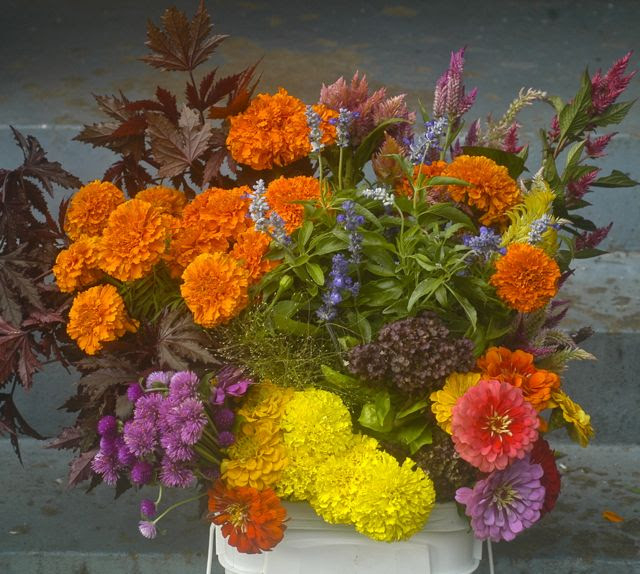 CommonWealth’s cut flower garden is in full glory this month. Rain + a bit of luck + lots of hard work = gorgeous flowers!
CommonWealth’s cut flower garden is in full glory this month. Rain + a bit of luck + lots of hard work = gorgeous flowers!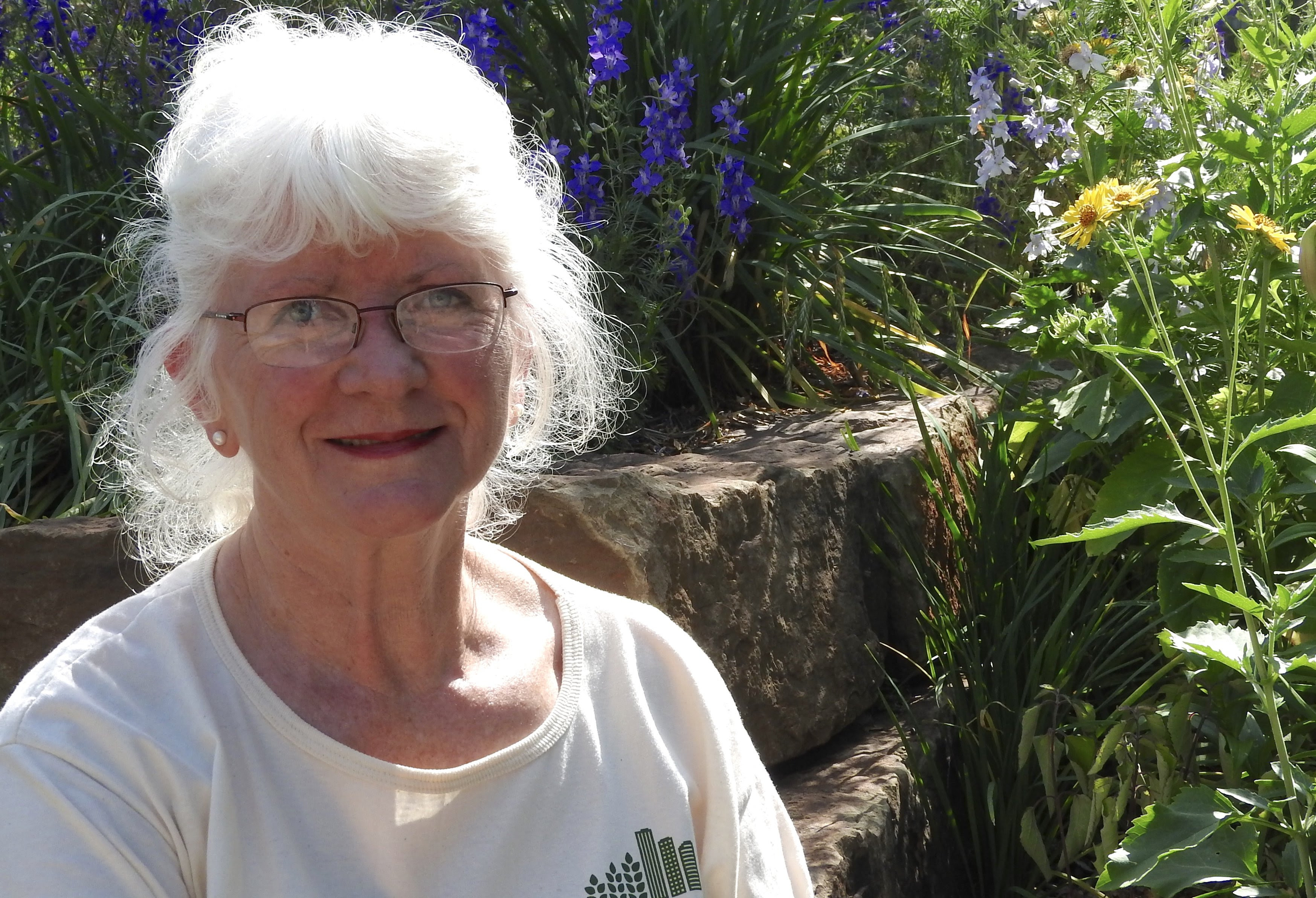 Jody Lesch is a CommonWealth story, indeed. She learned about the urban farm during an Oklahoma City Urban Ag tour three years ago and began volunteering on Saturdays, working in the garden. It wasn’t long before she began to apply her interests—in pollinators and the habitats they love—to the work at CommonWealth.
Jody Lesch is a CommonWealth story, indeed. She learned about the urban farm during an Oklahoma City Urban Ag tour three years ago and began volunteering on Saturdays, working in the garden. It wasn’t long before she began to apply her interests—in pollinators and the habitats they love—to the work at CommonWealth. 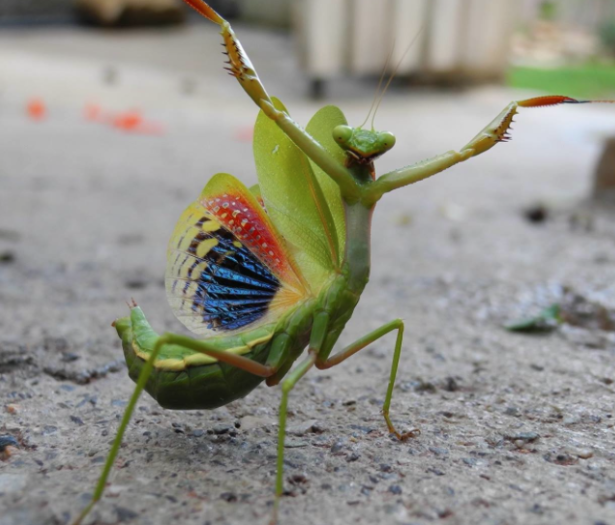 Belonging to the order Mantodea and sizing in at an adult length of 1 – 16 cm. A relative to termites and cockroaches. The Master Zen Assassin itself. The Praying Mantis.
Belonging to the order Mantodea and sizing in at an adult length of 1 – 16 cm. A relative to termites and cockroaches. The Master Zen Assassin itself. The Praying Mantis. 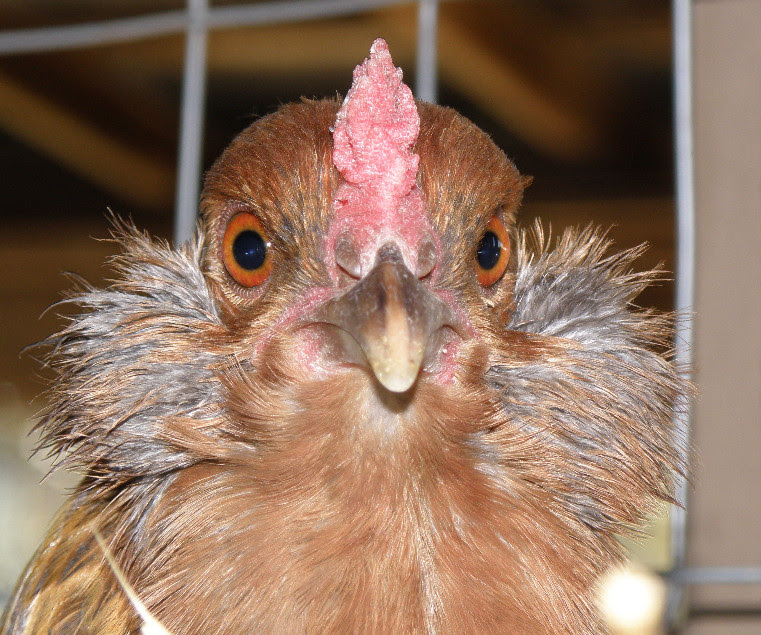
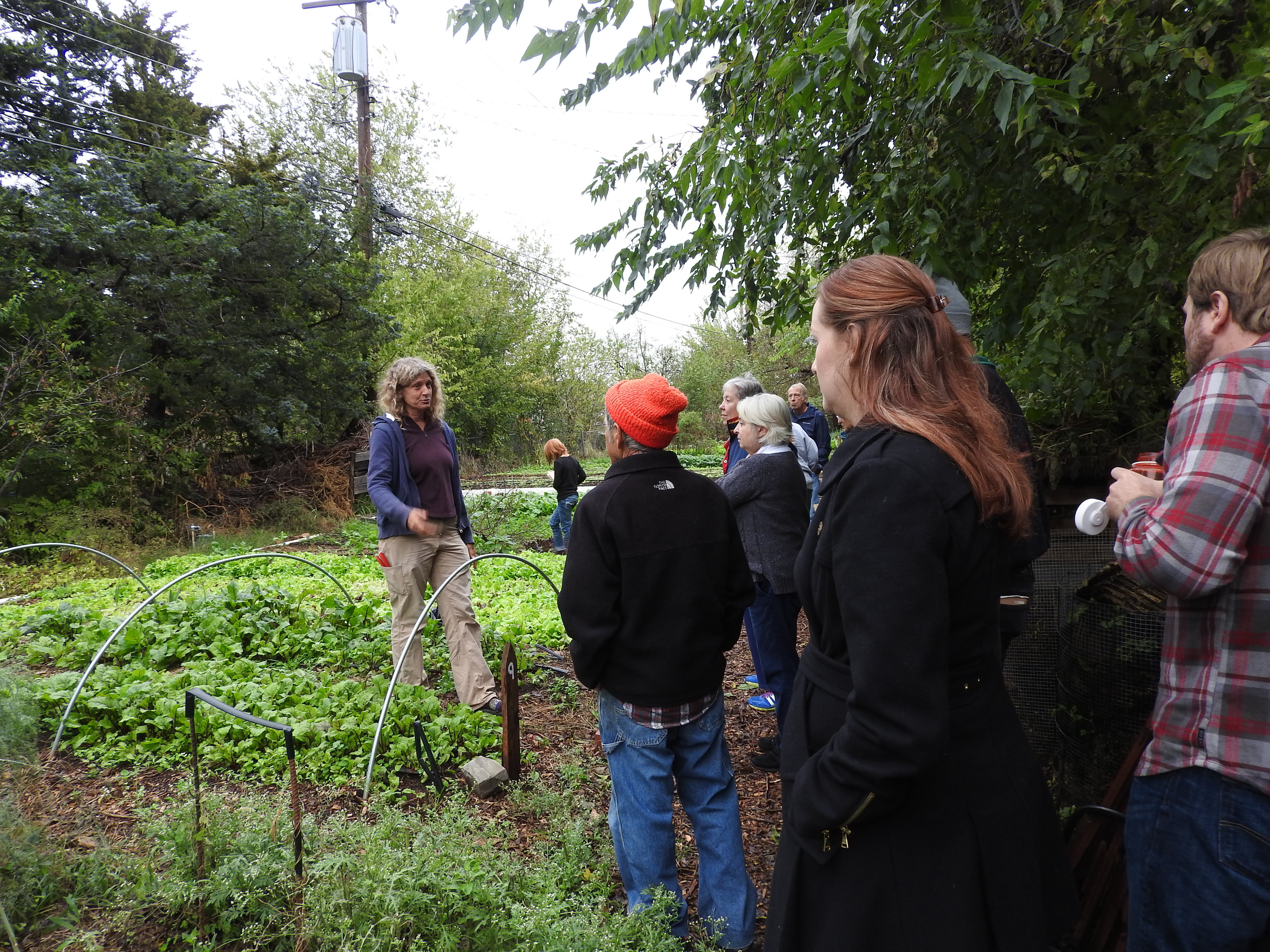

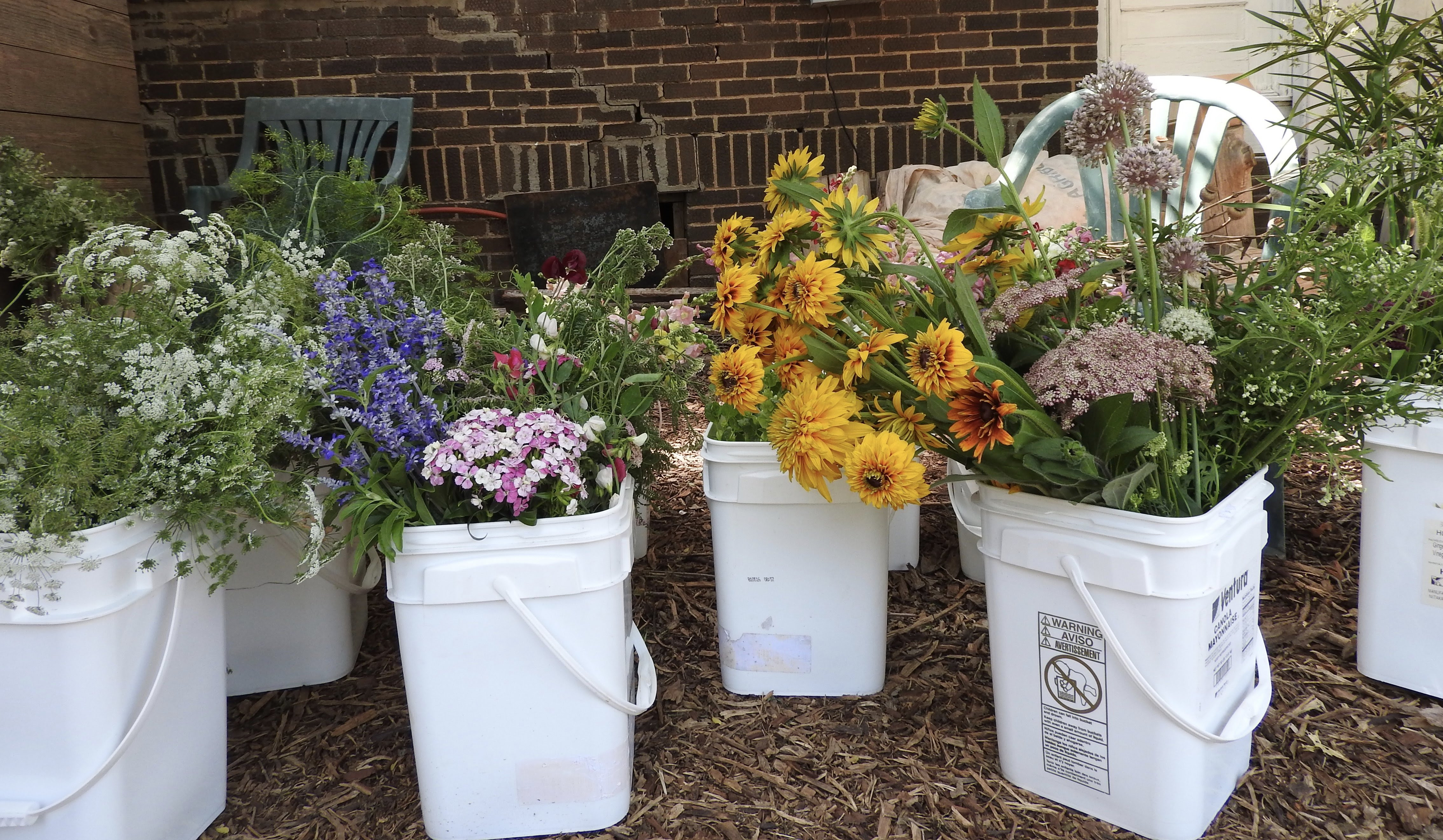 There is nothing like a sea of flowers to make my heart leap. I can harvest flowers all morning, then come back
There is nothing like a sea of flowers to make my heart leap. I can harvest flowers all morning, then come back  Slow Flowers
Slow Flowers “Elia rode her bike past our house often and saw the front yard garden and wanted to be friends with the people who lived there. She talked to David about the idea of an urban farm production garden. I had known Elia as a fiber arts person. I’m not sure how I got sucked in to the garden. I just started doing things without being sure where it was going.”
“Elia rode her bike past our house often and saw the front yard garden and wanted to be friends with the people who lived there. She talked to David about the idea of an urban farm production garden. I had known Elia as a fiber arts person. I’m not sure how I got sucked in to the garden. I just started doing things without being sure where it was going.”
 Spider Wasps. Yeah. I said it. Spider Wasps. Take a moment to cringe and then read on. Spider wasps belong to the family Pompilidae in the Order Hymenoptera. Okay, so these guys are no joke. As you can see from the picture, they often take on prey just as large, if not larger than themselves. They do not kill their prey. Instead, the sting that they inflict paralyzes the spider and the wasp then transports it back to a nest. They usually have to drag the spider home, as often the spider is too big to carry in flight.
Spider Wasps. Yeah. I said it. Spider Wasps. Take a moment to cringe and then read on. Spider wasps belong to the family Pompilidae in the Order Hymenoptera. Okay, so these guys are no joke. As you can see from the picture, they often take on prey just as large, if not larger than themselves. They do not kill their prey. Instead, the sting that they inflict paralyzes the spider and the wasp then transports it back to a nest. They usually have to drag the spider home, as often the spider is too big to carry in flight. I watched as this particular wasp dragged its spider the entire length of the 30-foot east-west wall of the Hoop House. Apparently some species of spider wasps actually bite off the legs of the spider, making it easier to transport, and then subsequently proceed to drink the blood that leaks from the wounds. Wow. That’s gnarly. The female wasp then lays a single egg on the alive-but-paralyzed spider and well, the rest is history.
I watched as this particular wasp dragged its spider the entire length of the 30-foot east-west wall of the Hoop House. Apparently some species of spider wasps actually bite off the legs of the spider, making it easier to transport, and then subsequently proceed to drink the blood that leaks from the wounds. Wow. That’s gnarly. The female wasp then lays a single egg on the alive-but-paralyzed spider and well, the rest is history. Bacteria!
Bacteria!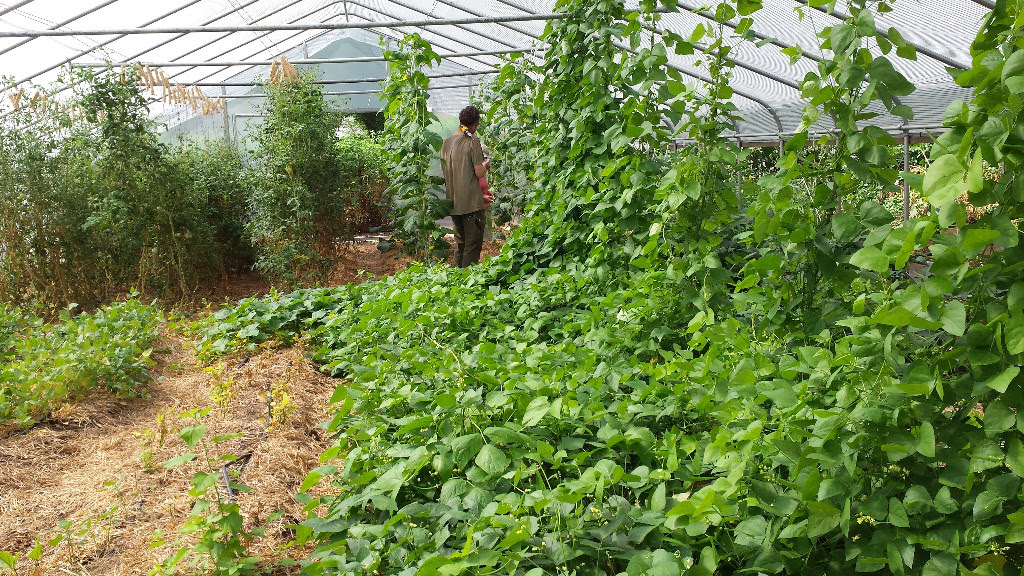 Thank you, thank you, thank you to all our supporters. The GoFundMe campaign is over the top: $4,270 of our $3,900 goal. With your help we were able to recover from the hoop house meltdown and we now have abundant growth and are beginning to get production in the hoop house again. We couldn’t have made such a big recovery without you all. It is SO heartening to know that so many generous friends in our community care about growing food in the city! (Details of the campaign are
Thank you, thank you, thank you to all our supporters. The GoFundMe campaign is over the top: $4,270 of our $3,900 goal. With your help we were able to recover from the hoop house meltdown and we now have abundant growth and are beginning to get production in the hoop house again. We couldn’t have made such a big recovery without you all. It is SO heartening to know that so many generous friends in our community care about growing food in the city! (Details of the campaign are 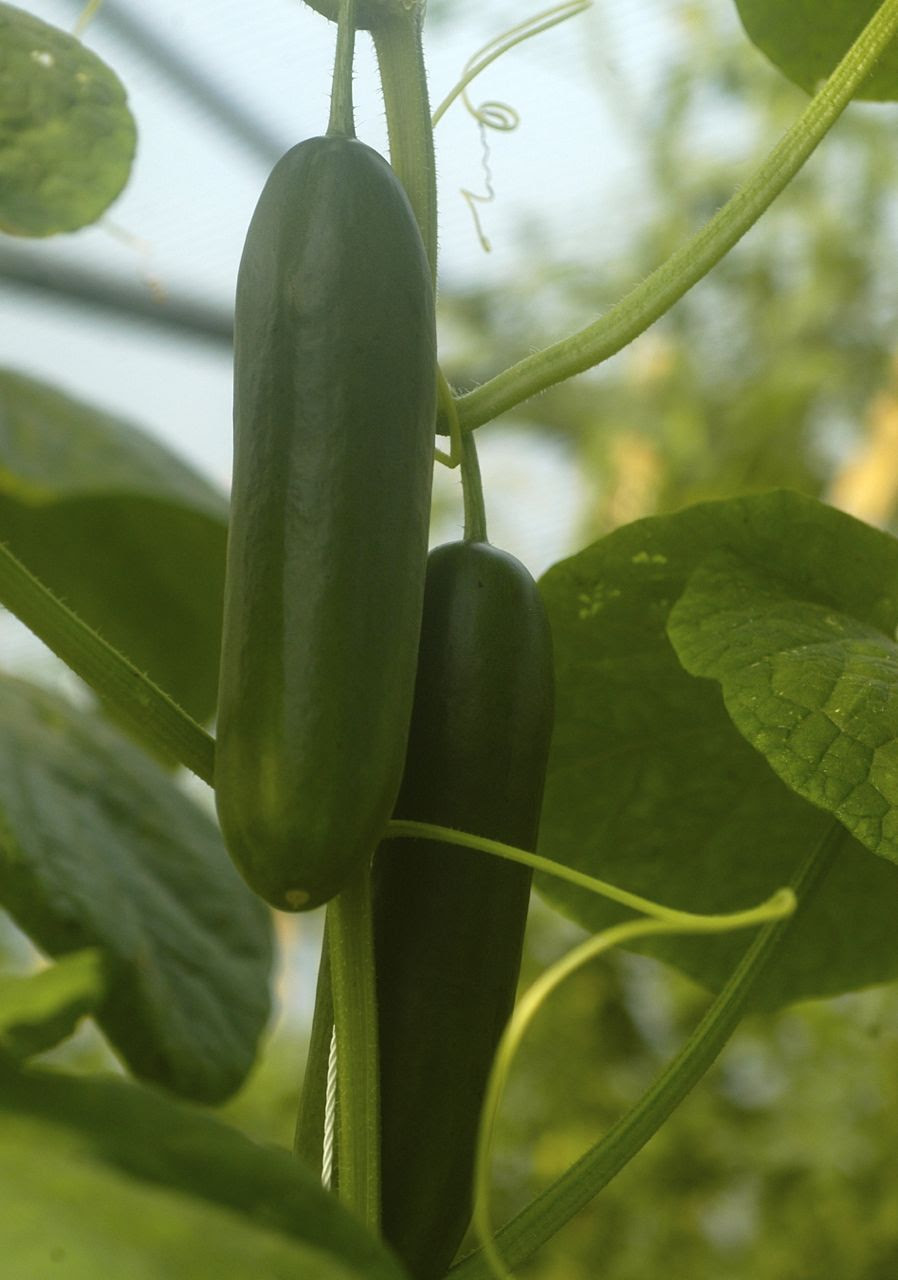 A few years ago, on a hot afternoon in mid-May, I was planting cucumber seedlings with a friend. She taught me to smell the root balls as I was planting; the roots smell just like cucumbers! Even a quick whiff of that crisp, invigorating scent made me feel a few degrees cooler.And that is the magic of cucumbers. Hidden inside that plain green envelope of waxy skin is a marvelously refreshing vegetable with endless appeal. Cucumber sandwiches, homemade refrigerator pickles, or chilled cucumber avocado soup, anyone? How about cucumber-lime sorbet? Or this
A few years ago, on a hot afternoon in mid-May, I was planting cucumber seedlings with a friend. She taught me to smell the root balls as I was planting; the roots smell just like cucumbers! Even a quick whiff of that crisp, invigorating scent made me feel a few degrees cooler.And that is the magic of cucumbers. Hidden inside that plain green envelope of waxy skin is a marvelously refreshing vegetable with endless appeal. Cucumber sandwiches, homemade refrigerator pickles, or chilled cucumber avocado soup, anyone? How about cucumber-lime sorbet? Or this  Cucumbers come in more sizes and colors then one would ever dream by just walking down the grocery aisle. Lemon cucumbers are small and round, with pale yellow skin. Poona kheera is an unusual variety from India with caramel brown skin. I’ve found Diva to be a reliable producer, even in our hot summers, and have heard other southern growers say the same. Armenian cucumbers are actually a type of melon, but they look and taste like cucumbers, and are exceptionally productive. Any way you slice it, cucumbers are a winner in the summer garden.—Lia
Cucumbers come in more sizes and colors then one would ever dream by just walking down the grocery aisle. Lemon cucumbers are small and round, with pale yellow skin. Poona kheera is an unusual variety from India with caramel brown skin. I’ve found Diva to be a reliable producer, even in our hot summers, and have heard other southern growers say the same. Armenian cucumbers are actually a type of melon, but they look and taste like cucumbers, and are exceptionally productive. Any way you slice it, cucumbers are a winner in the summer garden.—Lia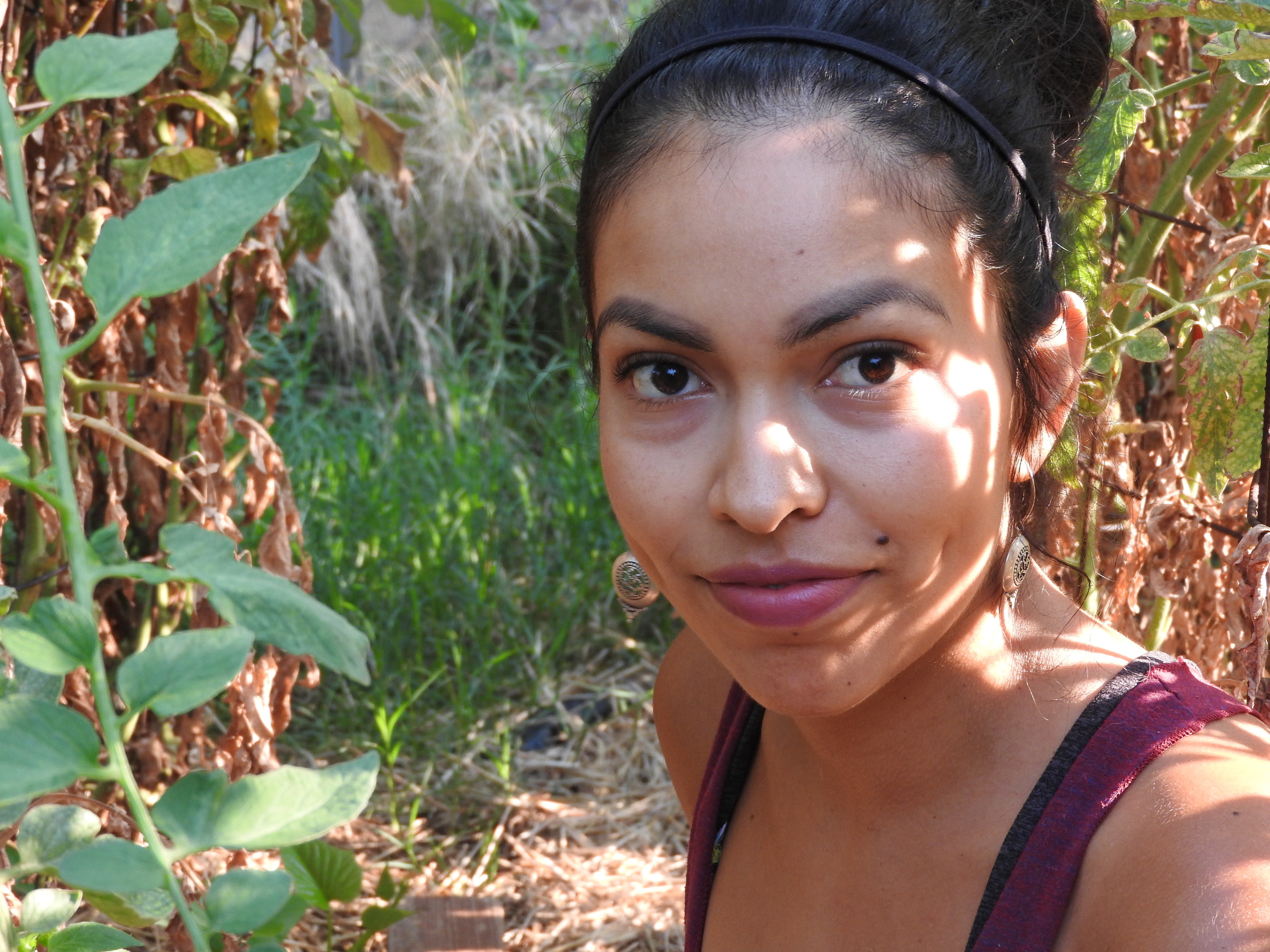
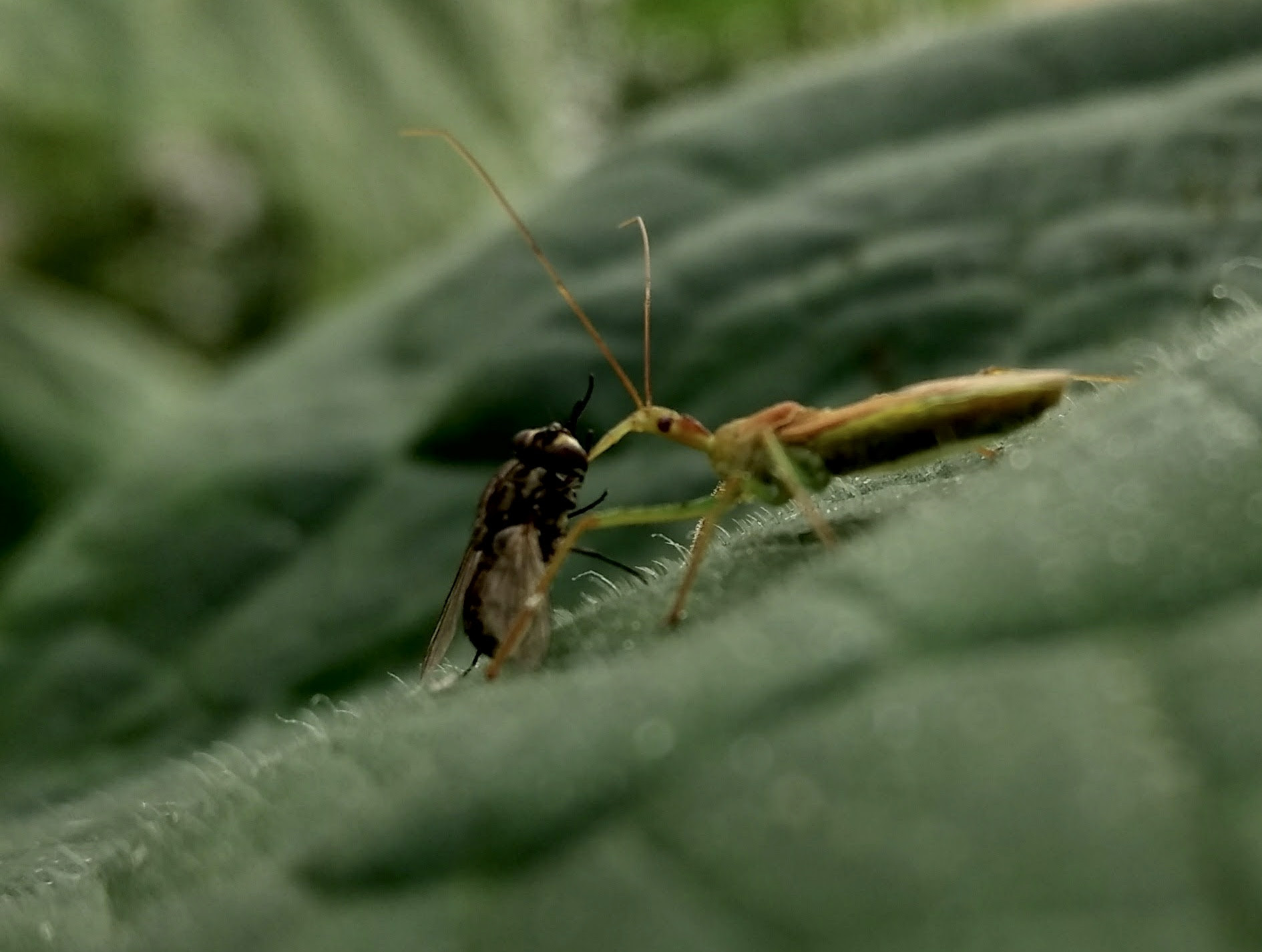 The Assassin bug—cool name right? Yeah, cool name. The assassin bug is a general term for a rather large family of true bugs in the Reduviidae family. As the name suggests, they are predatory insects. You might think of them as your own personal garden ninjas or knights, as they are highly beneficial to growers.There are roughly 150 species in North America alone. Of these species, the Wheel bug is the largest, sizing in at approximately 1¼ inches long. Great care should be employed with the handling of assassin bugs, Wheels in particular—or perhaps avoidance entirely, as they will bite if handled carelessly. The bite is known to be intensely painful.
The Assassin bug—cool name right? Yeah, cool name. The assassin bug is a general term for a rather large family of true bugs in the Reduviidae family. As the name suggests, they are predatory insects. You might think of them as your own personal garden ninjas or knights, as they are highly beneficial to growers.There are roughly 150 species in North America alone. Of these species, the Wheel bug is the largest, sizing in at approximately 1¼ inches long. Great care should be employed with the handling of assassin bugs, Wheels in particular—or perhaps avoidance entirely, as they will bite if handled carelessly. The bite is known to be intensely painful.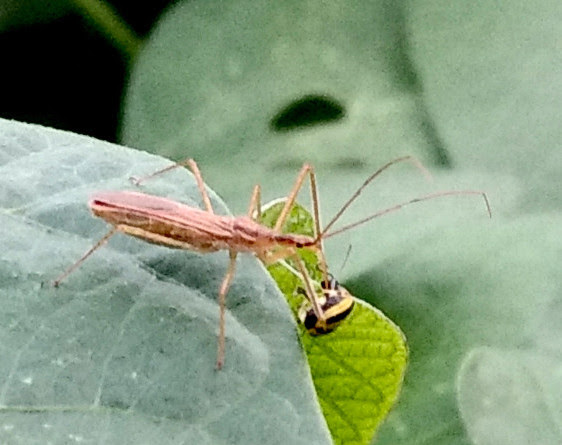 Assassin bugs prey on a great variety of garden pests including flies, mosquitoes, beetles and caterpillars. They use a long, protruding and piercing mouthpart known as a beak. Assassin bugs catch and puncture their prey, injecting salivary secretions that then dissolve the prey’s internal tissues. I believe the proper scientific term is: gooification. Yes, that sounds right.
Assassin bugs prey on a great variety of garden pests including flies, mosquitoes, beetles and caterpillars. They use a long, protruding and piercing mouthpart known as a beak. Assassin bugs catch and puncture their prey, injecting salivary secretions that then dissolve the prey’s internal tissues. I believe the proper scientific term is: gooification. Yes, that sounds right.
















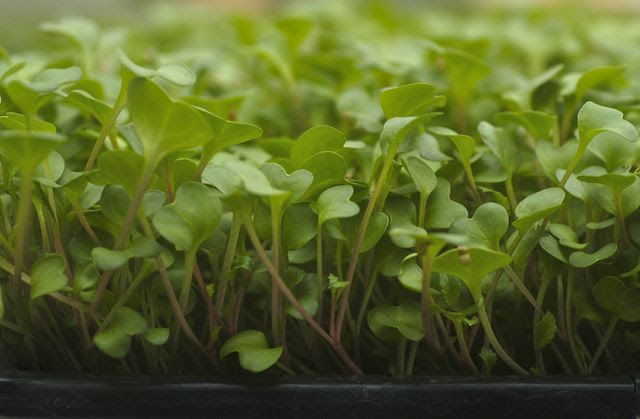

 So glad you asked! Because the gardens—the whole farm—is gorgeous these days.
So glad you asked! Because the gardens—the whole farm—is gorgeous these days.
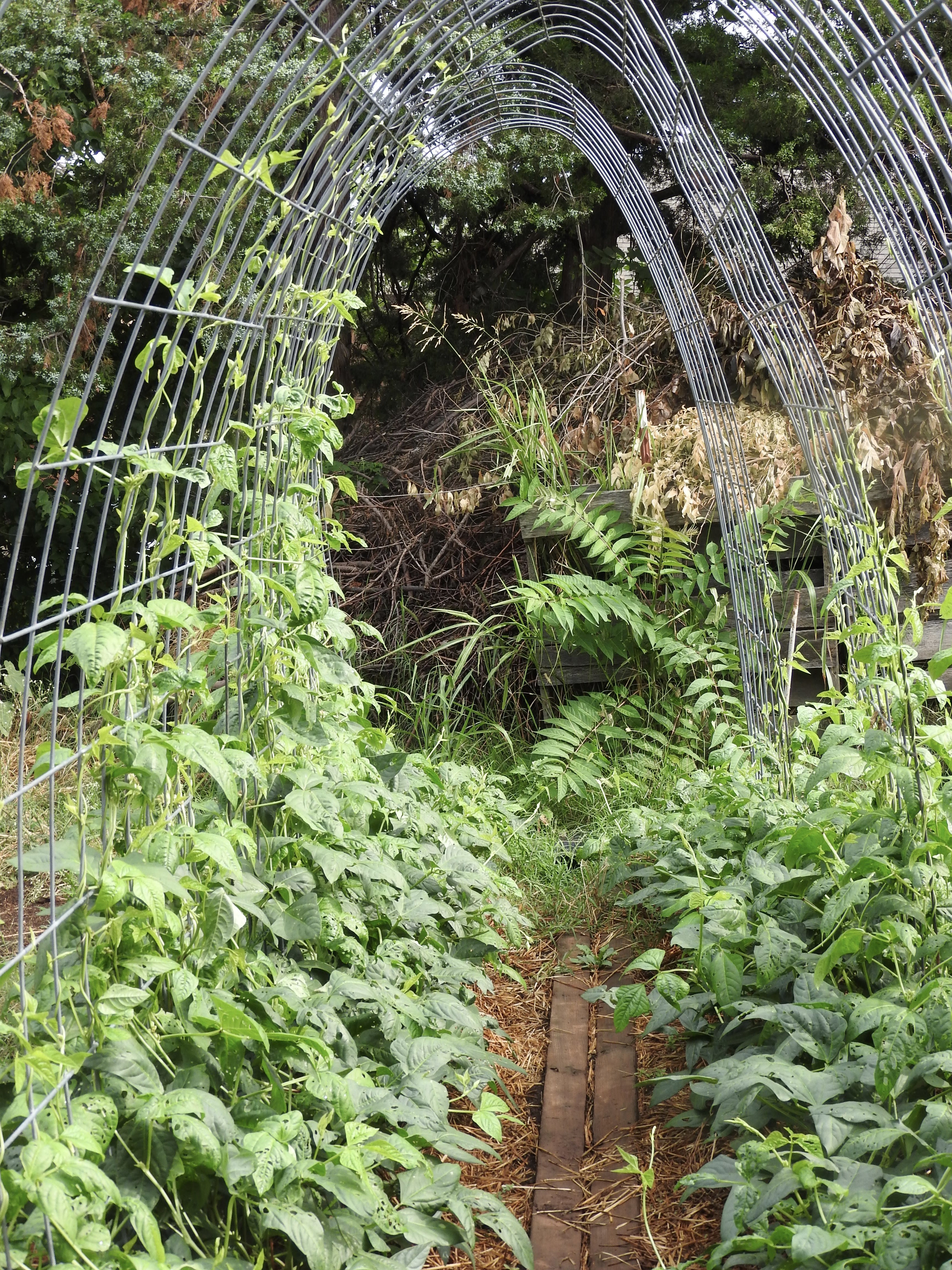 There is a good variety of vegetables on the farm, including eggplant, peppers, yard long beans, cucumbers, sweet potatoes, basil, beets, purslane, arugula and mustard greens. Potatoes have been harvested and a cover crop of cow peas planted to add nitrogen to the soil. With the amazing rain, little seedlings are already poking their heads up through that rich CommonWealth compost.
There is a good variety of vegetables on the farm, including eggplant, peppers, yard long beans, cucumbers, sweet potatoes, basil, beets, purslane, arugula and mustard greens. Potatoes have been harvested and a cover crop of cow peas planted to add nitrogen to the soil. With the amazing rain, little seedlings are already poking their heads up through that rich CommonWealth compost.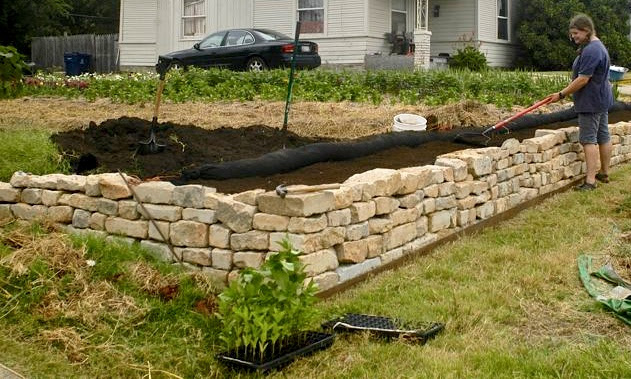 Braden’s stonemasonry skills. Lia, Edith and apprentices have planted the entire lot now and rows and rows of flowers are abloom, with more to show soon.
Braden’s stonemasonry skills. Lia, Edith and apprentices have planted the entire lot now and rows and rows of flowers are abloom, with more to show soon.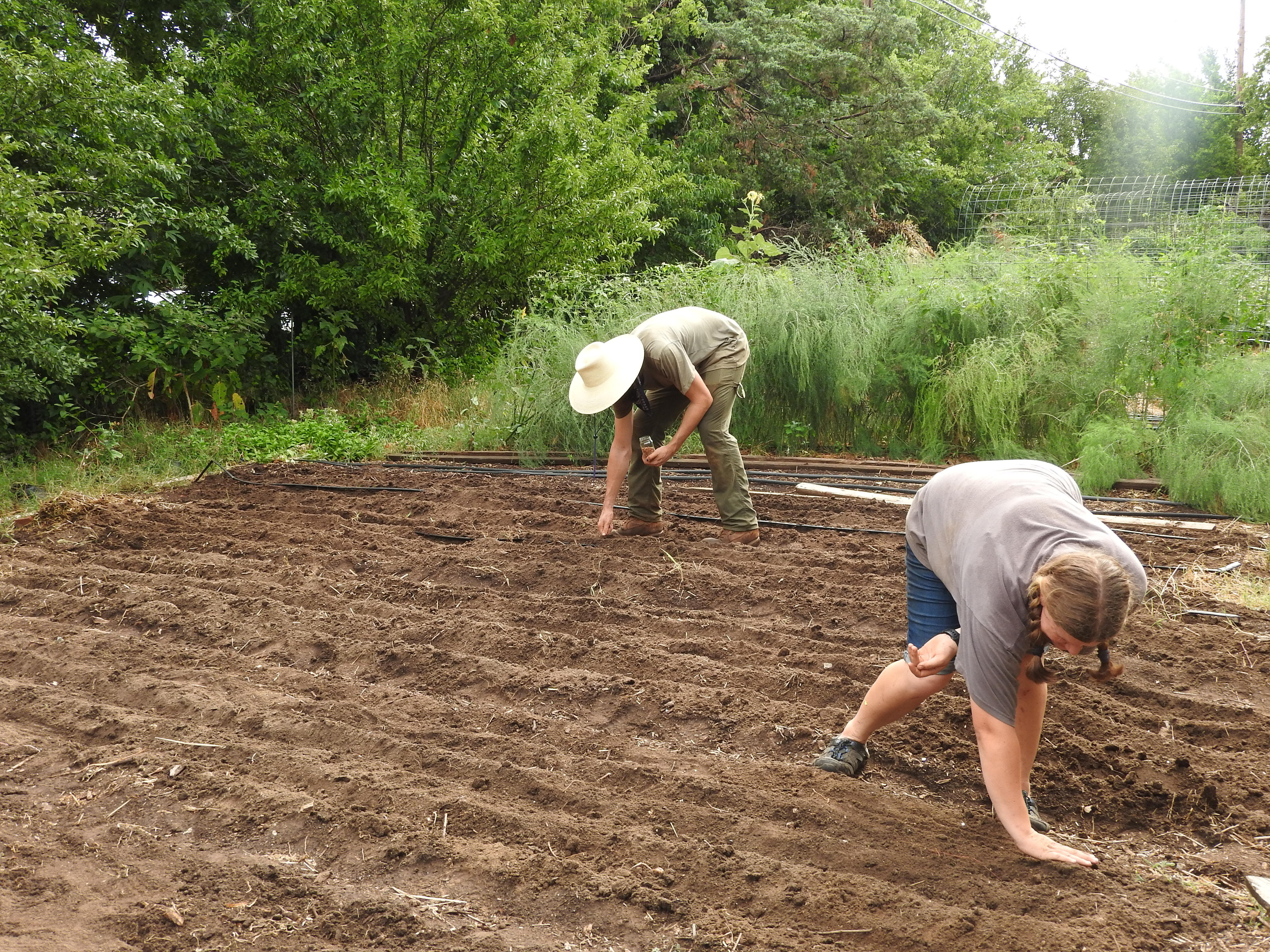
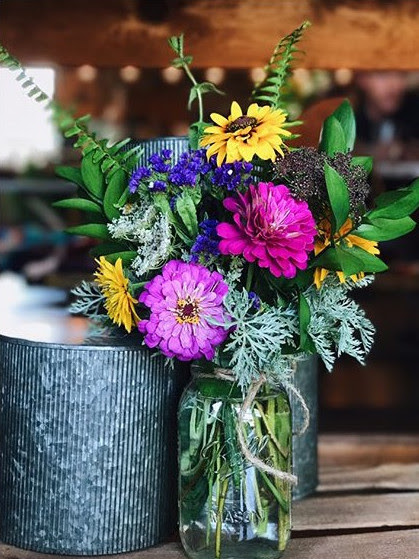

 Beginners
Beginners
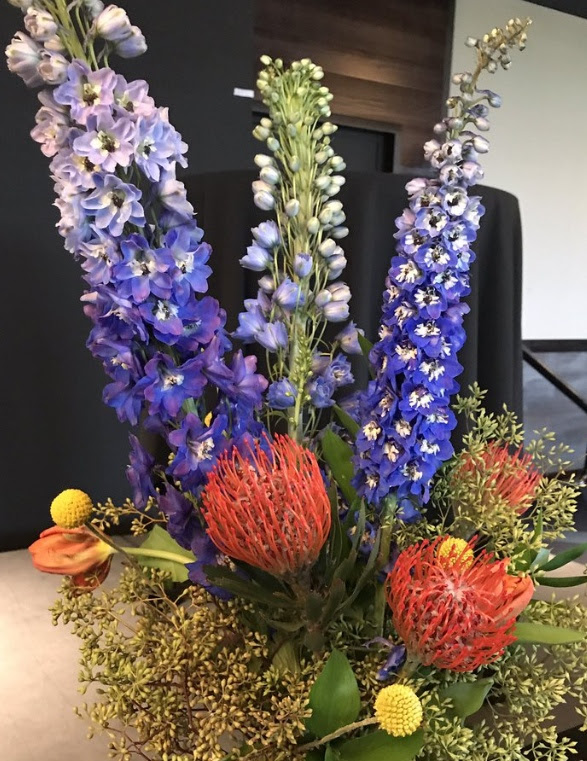
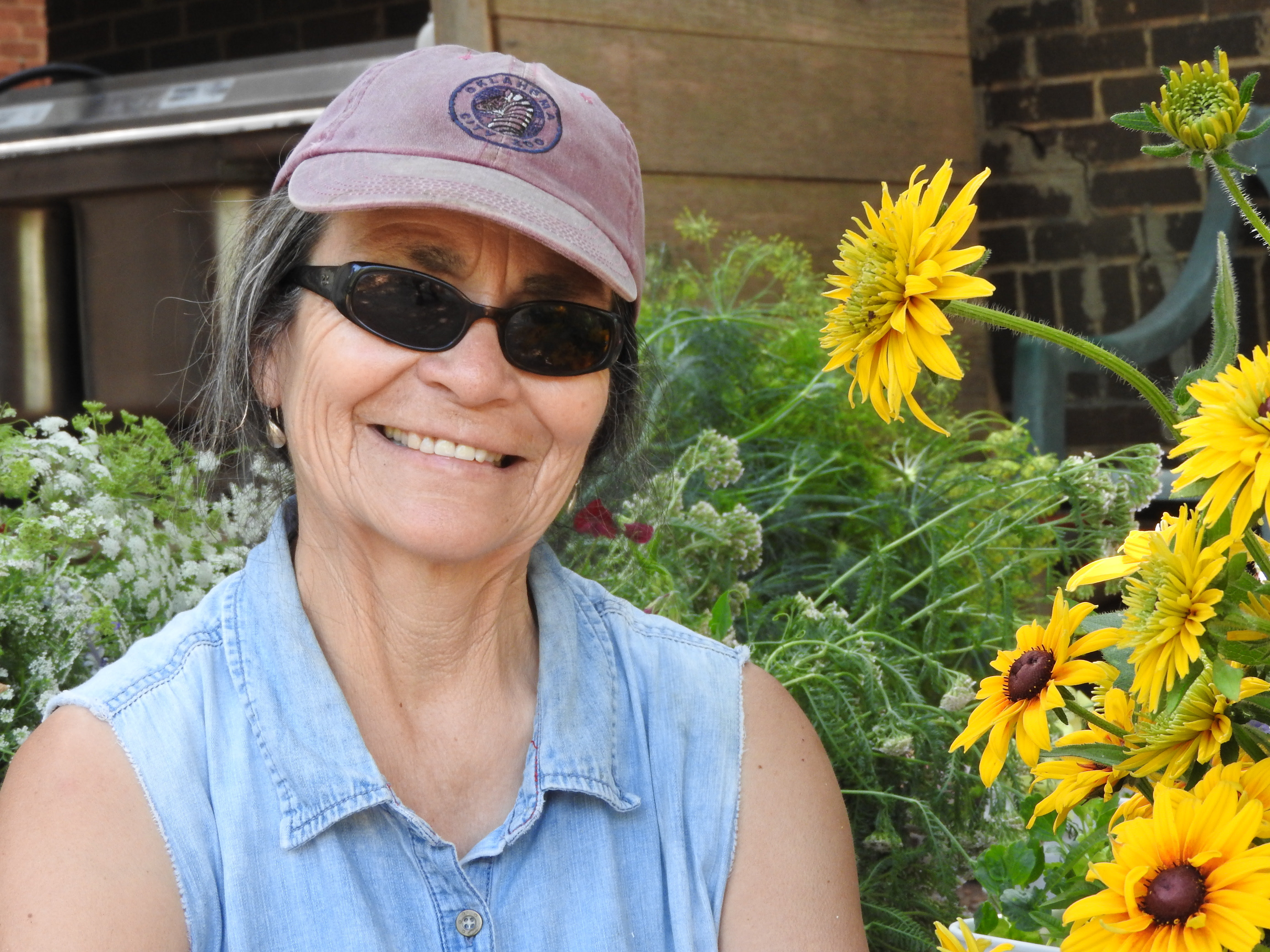 Edith grew up working alongside her family in the vegetable fields of eastern Colorado, then alongside her husband growing vegetables near Holdenville, Ok. For 32 years, she worked as a horticulturist at the Oklahoma City Zoo, transforming grassy areas into native wildflower plantings. “There was no plant budget at first,” she says. “We went out and gathered seeds and transplanted plants from the area around the zoo.”
Edith grew up working alongside her family in the vegetable fields of eastern Colorado, then alongside her husband growing vegetables near Holdenville, Ok. For 32 years, she worked as a horticulturist at the Oklahoma City Zoo, transforming grassy areas into native wildflower plantings. “There was no plant budget at first,” she says. “We went out and gathered seeds and transplanted plants from the area around the zoo.” Well, the garden gods must have had a good chuckle Wednesday afternoon, when our hoop house was inadvertently left closed up for an hour or two. When I found it, the temperature inside was an impressive 160 degrees. The inhabitants did not fare well: cucumber, edamame, lima beans and some of our seedling flats were cooked through and through. Tomato plants were all but dead.
Well, the garden gods must have had a good chuckle Wednesday afternoon, when our hoop house was inadvertently left closed up for an hour or two. When I found it, the temperature inside was an impressive 160 degrees. The inhabitants did not fare well: cucumber, edamame, lima beans and some of our seedling flats were cooked through and through. Tomato plants were all but dead.  Saturday, June 10
Saturday, June 10

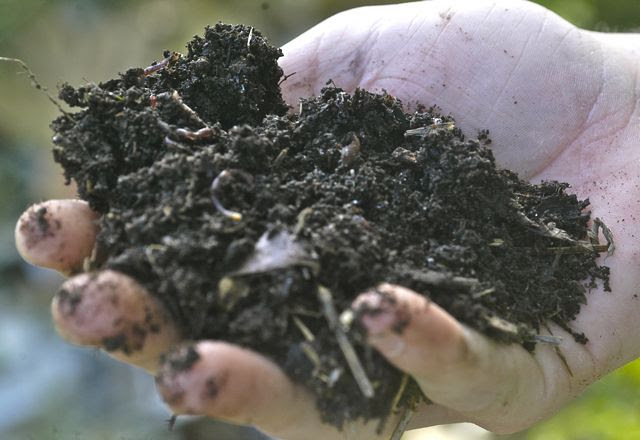 too. And weather. And timing. But soil quality is HUGE! Get it right with the soil and everything else gets a lot easier.I’ve recently been learning about the concept of remineralizing our soil, and how important that is for growing vibrantly healthy food. So I’m delighted to offer this workshop to other gardeners and farmers who want to improve their soil ecology, have fewer disease and insect problems, and grow foods with high levels of vitality and nutrition.It’s not just about having enough minerals in the soil; even more critical is bringing it all into balance. Admittedly, this can get a wee bit complicated! Jordan will focus on the practical side of how to take proper soil samples and send them off for analysis, and what to do with those results. He’ll walk us through the basic interaction of elements in the soil, and how to apply these principles to your own garden or farm.—LiaJordan has a degree in Plant and Soil Sciences from OSU, and recently returned from an internship in Missouri that focused on soil health and remineralizing soils.
too. And weather. And timing. But soil quality is HUGE! Get it right with the soil and everything else gets a lot easier.I’ve recently been learning about the concept of remineralizing our soil, and how important that is for growing vibrantly healthy food. So I’m delighted to offer this workshop to other gardeners and farmers who want to improve their soil ecology, have fewer disease and insect problems, and grow foods with high levels of vitality and nutrition.It’s not just about having enough minerals in the soil; even more critical is bringing it all into balance. Admittedly, this can get a wee bit complicated! Jordan will focus on the practical side of how to take proper soil samples and send them off for analysis, and what to do with those results. He’ll walk us through the basic interaction of elements in the soil, and how to apply these principles to your own garden or farm.—LiaJordan has a degree in Plant and Soil Sciences from OSU, and recently returned from an internship in Missouri that focused on soil health and remineralizing soils. 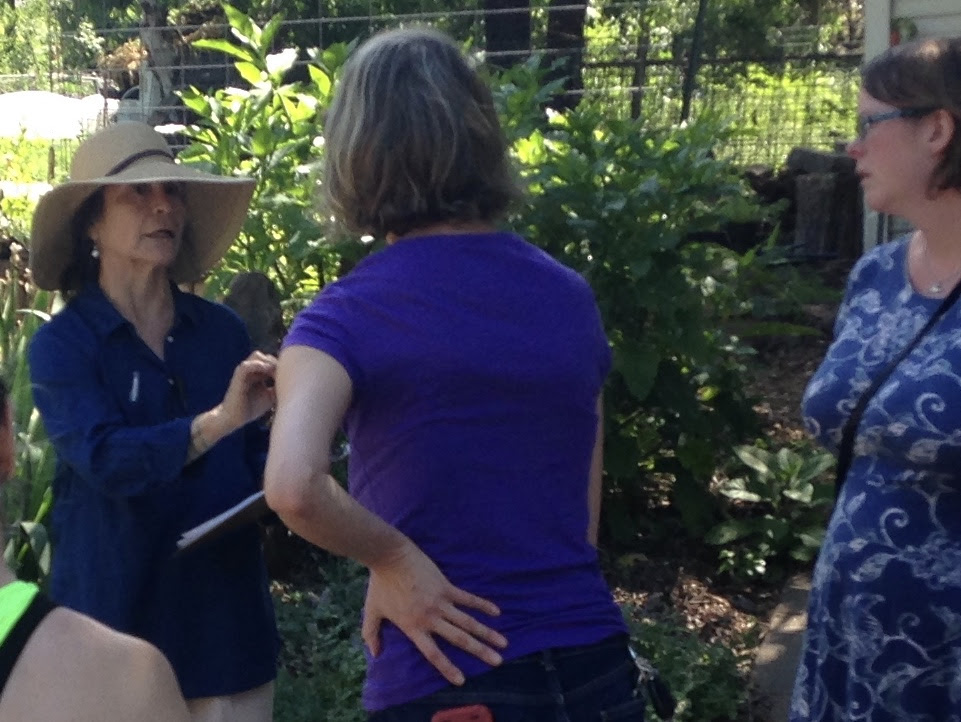 Last Saturday in Garden School, flower guru Edith Siemens taught what to plant in a garden to draw butterflies, bees, and other pollinators—and gave a tour of her splendid garden!
Last Saturday in Garden School, flower guru Edith Siemens taught what to plant in a garden to draw butterflies, bees, and other pollinators—and gave a tour of her splendid garden!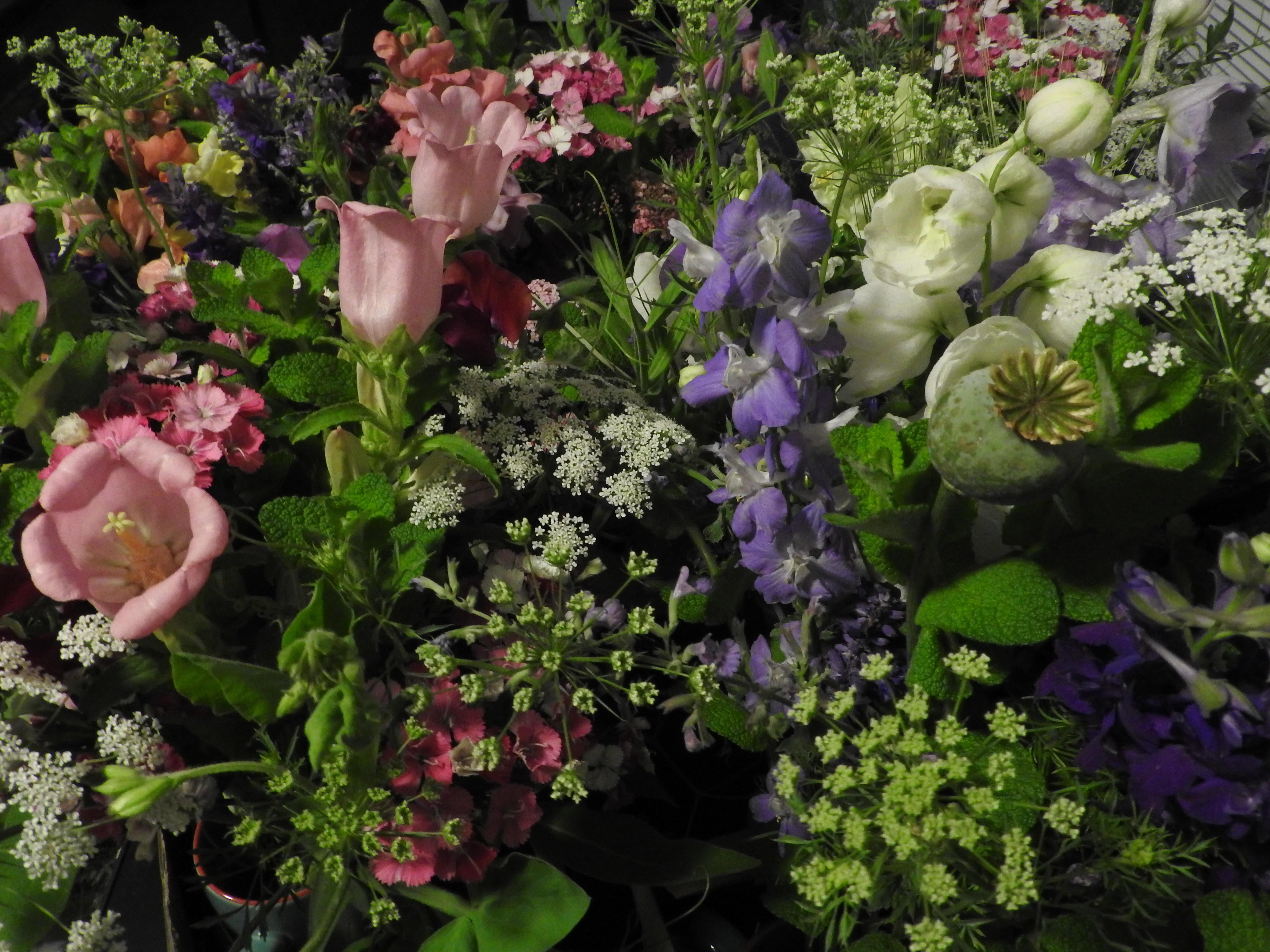

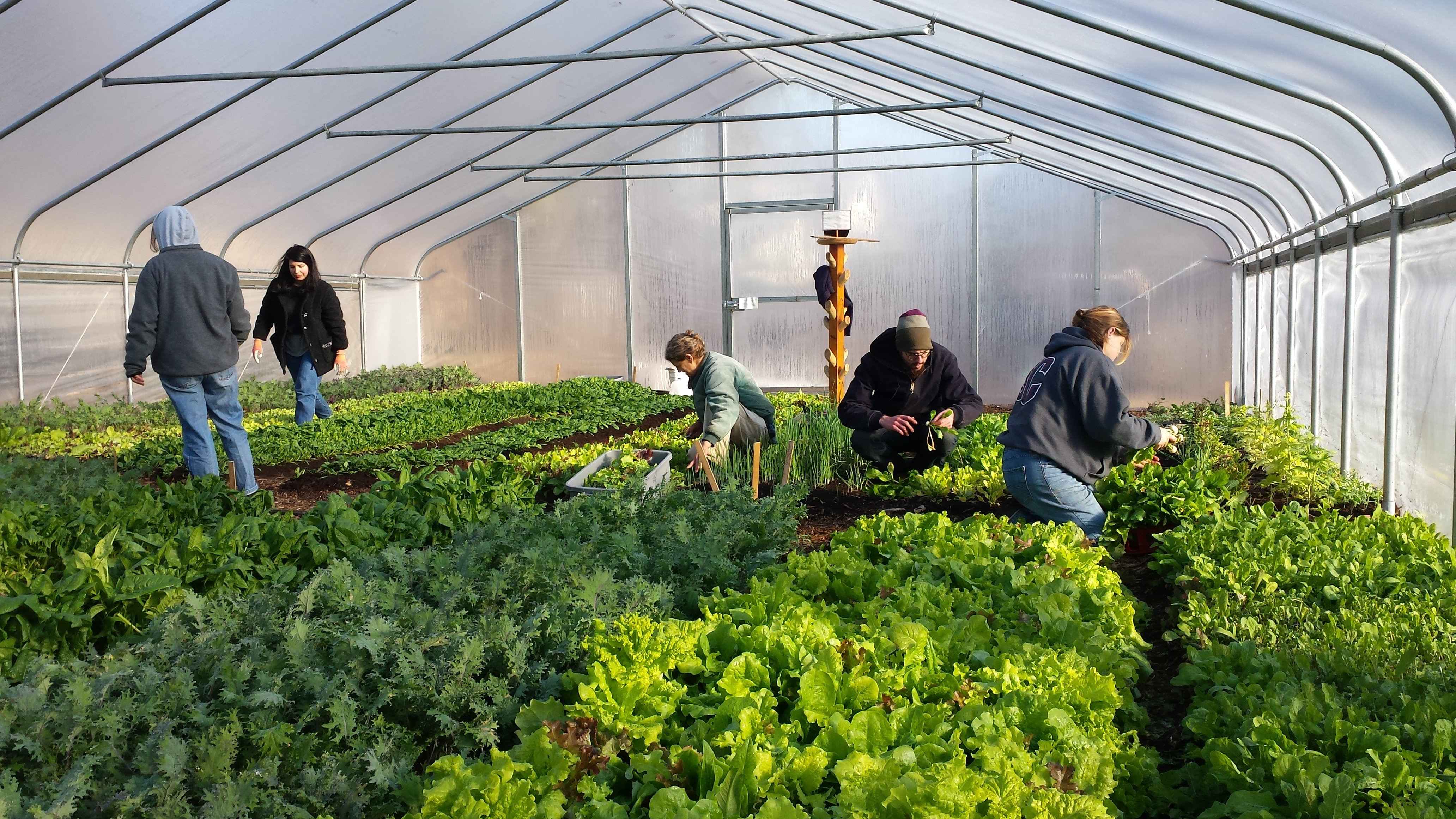
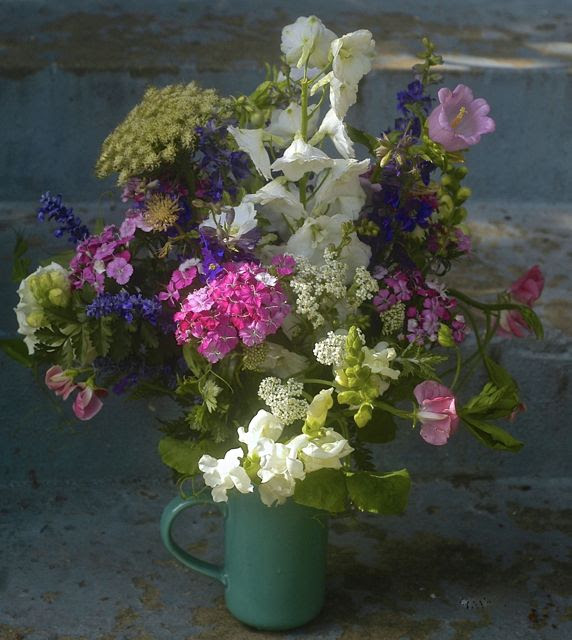
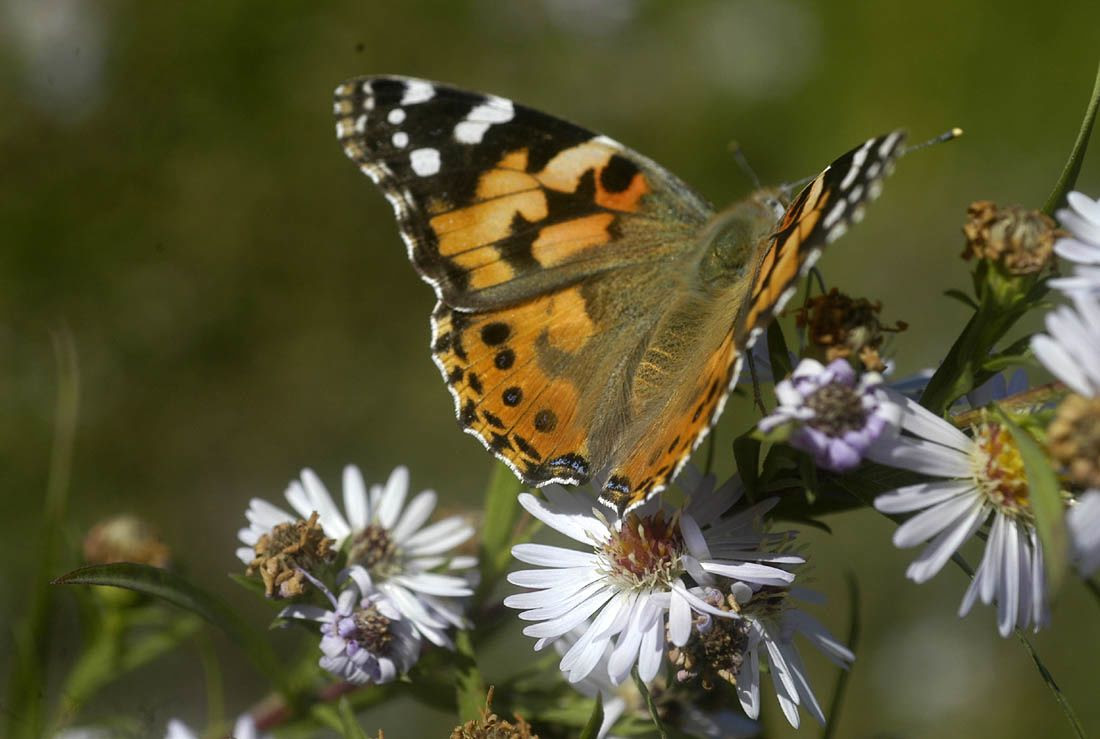
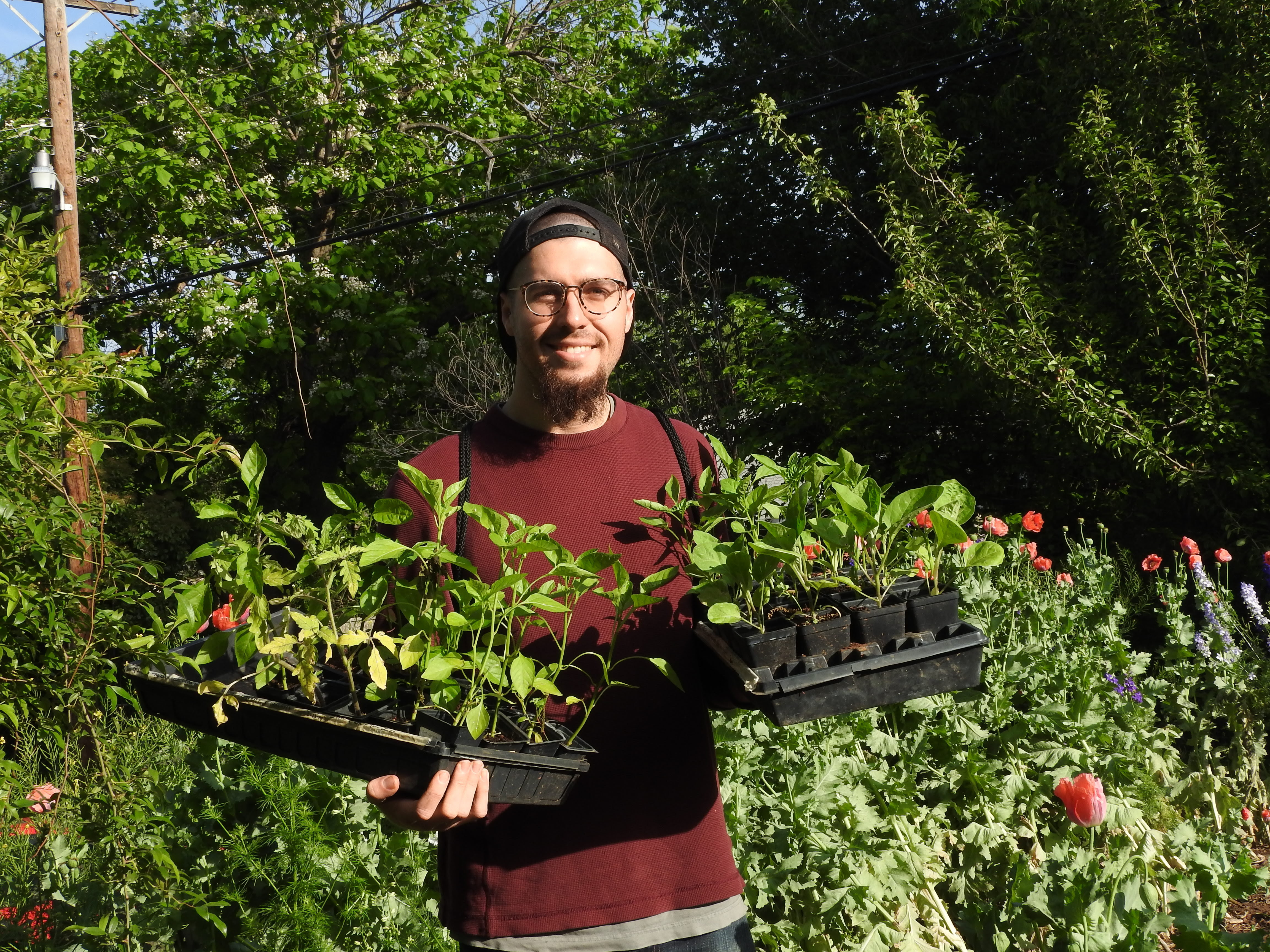 When Christopher Jennings began his apprenticeship at CommonWealth Urban Farms, even harvesting spinach seemed daunting to him. Here were rows of lush spinach inside the hoop house… How do you get down between the rows and take that knife and cut those beautiful green leaves? Individually? As a bunch? For Christopher, who had studied chemical engineering at OU, somehow he couldn’t wrap his mind around how to harvest the spinach.
When Christopher Jennings began his apprenticeship at CommonWealth Urban Farms, even harvesting spinach seemed daunting to him. Here were rows of lush spinach inside the hoop house… How do you get down between the rows and take that knife and cut those beautiful green leaves? Individually? As a bunch? For Christopher, who had studied chemical engineering at OU, somehow he couldn’t wrap his mind around how to harvest the spinach.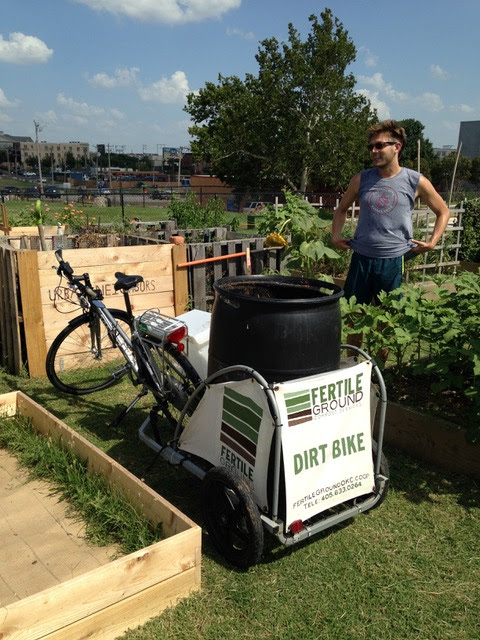 Almost six years old, Fertile Ground started from its first day with similar goals as CommonWealth: to build more environmentally and financially sustainable communities. Born from a group of CommonWealth volunteers, Fertile Ground is a Worker Cooperative offering multiple services to help regular people to reduce their environmental impact: residential compost service, zero-emission lawn service, raised garden beds; zero-waste event recycling and composting as well commercial recycling and composting for businesses. Incorporating as a Worker Cooperative means that each worker has a share in the company and a vote in organizational decision-making. All workers share both responsibility and profits.
Almost six years old, Fertile Ground started from its first day with similar goals as CommonWealth: to build more environmentally and financially sustainable communities. Born from a group of CommonWealth volunteers, Fertile Ground is a Worker Cooperative offering multiple services to help regular people to reduce their environmental impact: residential compost service, zero-emission lawn service, raised garden beds; zero-waste event recycling and composting as well commercial recycling and composting for businesses. Incorporating as a Worker Cooperative means that each worker has a share in the company and a vote in organizational decision-making. All workers share both responsibility and profits.